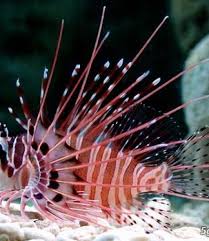
In Chinese classical literature, dragons are often more than just mythological creatures; they symbolize powerful forces, celestial beings, and deep emotional themes such as love and sacrifice. These majestic and fearsome beings frequently appear in stories that explore the complexities of human relationships, heroic deeds, and selfless acts of devotion. Through the symbolic representation of dragons, authors have woven tales that emphasize the nobility and purity of love, as well as the profound sacrifices made for the greater good. This article delves into the role of dragons in Chinese classical literature, particularly focusing on their association with love and sacrifice.
1. The Symbolism of Dragons in Chinese Literature
Dragons in Chinese mythology are often regarded as auspicious and divine creatures with the power to control the weather, influence the elements, and protect humanity. These mystical beings represent strength, wisdom, and the connection between heaven and earth. However, in literature, dragons transcend their traditional roles as powerful rulers of nature to become symbols of love and sacrifice.
The dragon’s association with love and sacrifice is rooted in its symbolism of protection and guidance. In many tales, the dragon is not only a force of nature but a devoted protector, often intertwined with the fate of human characters. This relationship forms the foundation of many legendary stories, where love is tested by challenges, and sacrifices are made for the greater good.
2. The Legend of the White Snake (白蛇传)
One of the most famous tales where dragons are central to themes of love and sacrifice is the story of The Legend of the White Snake (白蛇传). In this classical love story, a snake spirit, transformed into a beautiful woman named Bai Suzhen, falls in love with a mortal man, Xu Xian. Despite the traditional animosity between humans and mythical creatures, Bai Suzhen’s love for Xu Xian is pure and unwavering.
In this tale, dragons appear as divine beings that help Bai Suzhen in her pursuit of love and in her struggle to maintain her human form. The dragon is not just a protector but a symbol of the struggle between the supernatural world and human emotions. The story also involves significant sacrifice, as Bai Suzhen risks everything—her immortality and her connection to the dragon world—just to be with Xu Xian.
Throughout the narrative, dragons are portrayed as both allies and obstacles in Bai Suzhen’s journey. Ultimately, the story is one of deep sacrifice, where the characters’ love transcends the natural world and defies the forces of fate. The dragon, in this context, represents both the obstacles that the lovers must overcome and the sacrifice they are willing to make for the sake of love.
3. The Story of Dragon King and His Daughter (龙王与女儿)
Another prominent tale that highlights the themes of sacrifice and devotion is the Story of the Dragon King and His Daughter (龙王与女儿). In this myth, the Dragon King, a powerful ruler of the sea, has a beautiful daughter who falls in love with a mortal prince. However, due to the rules of the underwater kingdom, the Dragon King forbids the union, believing that their love will bring disaster to both worlds.
In this story, the dragon symbolizes not just divine authority but the deep conflict between duty and love. The daughter, defying her father’s wishes, chooses to be with the prince, causing great tension between the realms. In an act of ultimate sacrifice, the Dragon King eventually relents and allows the union, understanding that true love can transcend the limitations of both human and divine realms.
The Dragon King’s acceptance of his daughter’s love symbolizes the selfless act of a parent who, despite initial resistance, understands the importance of love and personal sacrifice. The dragon, in this context, is a figure that must choose between preserving order and giving in to the human desire for love.
4. The Legend of the Dragon and the Phoenix (龙凤传说)
The Legend of the Dragon and the Phoenix is another classic story where dragons play a significant role in exploring love and sacrifice. The dragon and the phoenix, often seen as the quintessential male and female symbols in Chinese culture, represent harmony, balance, and the perfect union of opposites. In many variations of the tale, the dragon and phoenix are depicted as lovers who must overcome various trials and challenges to be together.
The dragon, in this legend, symbolizes masculine strength and determination, while the phoenix represents feminine grace and resilience. Together, they embody the ideal union, with each sacrifice something valuable to maintain their love. The dragon sacrifices his own pride and power to be with the phoenix, while the phoenix sacrifices her freedom to live by the dragon’s side.
This myth underscores the themes of sacrifice in the pursuit of love. The dragon, as a noble and selfless character, exemplifies the extent to which one will go to preserve harmony and love, even when faced with great personal loss.
5. The Myth of the Dragon’s Tears (龙泪传说)
The Myth of the Dragon’s Tears is another story that explores sacrifice and devotion. In this tale, a young dragon falls in love with a mortal woman. Despite the dragon’s powerful status, he chooses to live among humans to be with her. However, as the human world is fraught with dangers, the dragon must continually protect her, making sacrifices in order to keep her safe from harm.
In one climactic moment of the story, the dragon’s tears fall as he watches his beloved fall into a deep danger. His tears are said to possess magical powers, capable of healing and protecting the ones he loves. This act of self-sacrifice and love represents the dragon’s willingness to give up his own life force to save his beloved, showcasing the deep emotional capacity of dragons in Chinese mythology.
The dragon’s tears symbolize the profound emotional depth of these mythical creatures, suggesting that love and sacrifice are not only human traits but qualities that transcend even the supernatural realm. The dragon’s tears are both a literal and symbolic manifestation of the selflessness that is central to the theme of sacrifice in Chinese love stories.
6. The Role of Dragons in Love and Sacrifice
The recurring theme of dragons in Chinese classical literature is not just one of mysticism and supernatural strength but also of deep emotional and moral lessons. Dragons, as mythical creatures, are often tasked with guiding or protecting those who seek true love, and their actions reflect the nobility of sacrifice for the sake of others.
In many of these stories, dragons represent not only cosmic power but also the noble qualities of love, loyalty, and sacrifice. The use of dragons in love stories reflects the belief that true love is worth any sacrifice, even if it means defying fate or the divine order. The power of the dragon in these tales is not only physical but deeply emotional, with the creatures serving as metaphors for the strength and purity of love.
7. Conclusion
Dragons in classical Chinese literature transcend their role as mythological creatures of strength and power, instead becoming symbols of love, sacrifice, and emotional depth. From the tale of the White Snake to the Dragon King’s sacrifice for his daughter, dragons symbolize the transformative power of love and the sacrifices that accompany it. In Chinese culture, dragons represent both the cosmic and human aspects of love: a powerful, protective force that is willing to endure great personal loss to maintain love and harmony. These stories remind us that true love is often accompanied by sacrifice, and that the greatest acts of devotion are the ones that come at the greatest cost.









